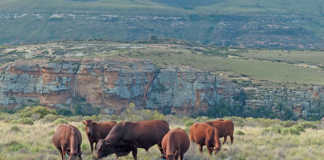Proposed amendments include the establishment of a veterinary appeals committee and compulsory community service by newly qualified vets.During public parliamentary hearings held by the Portfolio Committee on Agriculture, Forestry and Fisheries to discuss the proposed amendments, the South African Veterinary Association’s (SAVA) president, Dr Riaan du Preez, said they were “eagerly awaiting the implementation of a compulsory community service.”
“Members are ready to support the government in the implementation of the compulsory community service through public-private partnerships,” said Du Preez. But he said SAVA wished to caution the committee and the Department of Agriculture, Forestry and Fisheries (DAFF) that the roll-out should be well planned and timeously communicated to the first group of final year students affected.
Dr Pieter Mulder, deputy minister of DAFF, told members of the committee that it was too late for the amendments to be implemented in 2013. He said formal implementation would most likely only commence in 2014. Dr Botlhe Modisane, deputy director-general of DAFF, said only 215 of the 2 400 trained South African vets were working for the state, and very few of them were operating in rural areas. The introduction of compulsory community service aimed to address the lack of state veterinary workers, particularly in rural areas.
Modisane said that compulsory service would also address the emigration of newly qualified vets after graduation. Mulder said the reason newly qualified vets emigrated was not necessarily because of lack of local job opportunities, but because of higher salaries abroad. He said the compulsory community service programme would help retain veterinary skills in South Africa by reminding newly qualified vets of local job opportunities but that more skills could be retained by improving the salaries in state veterinary services.










